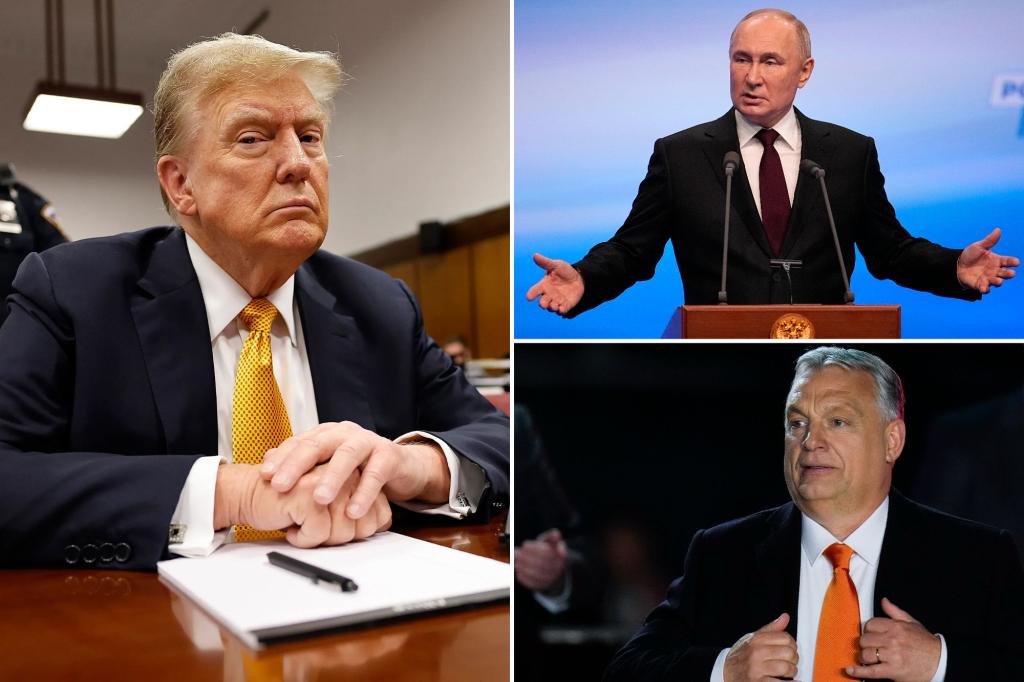After Donald Trump’s historic guilty verdict in his hush money case, he attacked the US criminal justice system, claiming the trial was rigged. Many compared his remarks to those of the Kremlin, with Russia’s President Vladimir Putin potentially benefiting from the chaos. Fiona Hill, a former White House national security adviser, suggested that autocratic leaders could use Trump’s attacks to boost their own standing with their citizens, influence the upcoming US presidential election, and undermine America’s global influence. Some autocratic countries, including Russia, supported Trump’s claims, calling the trial a means of eliminating political rivals.
China’s state-owned Global Times newspaper also weighed in, suggesting that Trump’s conviction added to the farcical nature of the US presidential election and would lead to increased political extremism and social unrest. Putin, in particular, is likely to see the turmoil in the US as an opportunity to widen divisions in Western societies, following accusations of Russian interference in various elections and the invasion of Ukraine. The Kremlin has been accused of using sabotage, targeting dissidents, and spreading fake news to sow discord and undermine democratic processes.
Russia’s goal is to move voices from the fringes of political debate to the mainstream by pushing Russian points of view through news and social media posts that appear to originate from the West. By creating chaos and distractions in Western democracies, autocratic leaders could benefit from the undermining of key issues such as the war in Ukraine. Trump’s attacks on the US justice system provide perfect fodder for potential propaganda and influence operations, possibly targeting swing voters in battleground states ahead of the November election.
Previous US presidential administrations have promoted America as a bastion of democracy and human rights, encouraging other states to adopt similar ideals. However, Trump’s criticism of the US justice system as a means of personal persecution aligns with tactics used in autocratic countries, legitimizing them in the eyes of their own people. Trump’s attacks on democratic institutions may be seen as an example for other nations, such as China and Russia, to justify their own anti-democratic measures and present themselves as more stable partners to countries in Africa, Asia, and Latin America, potentially reshaping global security architecture.
The new axis of authoritarians, including Russia, China, Iran, and North Korea, poses a daunting threat to global security as these states work together with overlapping interests. Moscow, in particular, may try to use the political turmoil in the US to divide the NATO security alliance and turn public opinion against the US, potentially reshaping global security architecture since the end of the Cold War. Some Western governments are balancing the need to respect the US justice system while not wanting to alienate Trump, who could become the next US president. Overall, the chaos created by Trump’s attacks on democratic institutions provides an opportunity for autocratic leaders like Putin to seek advantage and further their own agendas.


